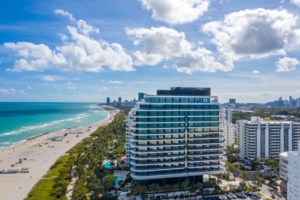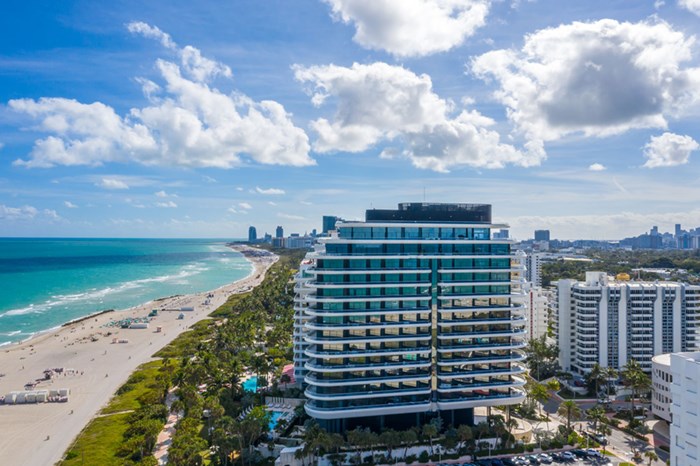Homestead-Miami Speedway Faces $536K Rent Dispute with City Officials Over CPI Adjustments
City Officials Issue Default Notice to Prestigious NASCAR Venue Over Payment Discrepancy
The relationship between the City of Homestead and its premier motorsport attraction has hit a rough patch, as municipal officials have formally accused Homestead-Miami Speedway of falling behind on rental payments by a substantial $536,180. The financial dispute centers not around missed payments but rather overlooked Consumer Price Index (CPI) adjustments that were contractually required since 2021.
In an April 25 communication obtained through public records, Homestead City Manager Zerry Ihekwaba delivered a formal default notice to Guillermo Santa Cruz, president of the renowned racing facility. The document outlines that while the speedway has consistently made its base annual payments of $875,000, it has failed to implement the mandatory CPI-based increases stipulated in their long-standing lease agreement.
"We understand that this technical default under the agreement may have been the result of a good faith administrative oversight," wrote Ihekwaba in his communication with the speedway's leadership. The notice requests that Homestead-Miami Speedway resolve the outstanding balance within 20 days of receipt.
The Financial Structure Behind South Florida's Racing Landmark
Homestead-Miami Speedway isn't just any sporting venue—it's a significant economic engine for South Florida's motorsport industry. The facility features a distinctive 1.5-mile oval track and accommodates 46,000 spectators at its One Ralph Sanchez Speedway Boulevard location.
The ownership structure reveals important context for this financial dispute. International Speedway Corporation, a subsidiary of NASCAR headquartered in Daytona Beach, maintains ownership of the speedway facilities. Sources close to NASCAR indicated to industry publications that the payment discrepancy likely resulted from clerical errors in the invoicing process, and that the organization intends to fulfill its financial obligations to the city.
Since breaking ground in 1993, the speedway has operated under a comprehensive lease agreement with the City of Homestead for approximately 650 acres of land. This arrangement has proven mutually beneficial over the decades, with the racing venue delivering consistent revenue to municipal coffers while attracting national attention to the region.
Historical Significance and Economic Impact
The establishment of Homestead-Miami Speedway holds profound significance in the area's economic recovery narrative. Following the devastating impact of Hurricane Andrew in 1992, which left much of South Florida's southernmost communities in ruins, city planners strategically developed the racing facility as a cornerstone of economic revitalization.
The speedway has since evolved into a premier destination on the NASCAR circuit, hosting multiple championship events and bringing substantial tourism revenue to the Homestead area. The venue's prominence reached new heights when it was announced that championship title races would return to the track next year, cementing its status among NASCAR's elite locations.
Industry analysts estimate that major NASCAR events at the speedway generate between $20-30 million in regional economic impact during race weekends, highlighting the venue's importance to local businesses and hospitality sectors. This economic contribution adds context to the city's careful approach in addressing the payment discrepancy.
Beyond Racing: Development Initiatives and Future Prospects
The speedway's influence extends beyond motorsports. In 2021, facility management explored diversification through a tentative agreement to sublease five acres to a group led by Miami real estate investor Jose Mallea. The proposed development would have established a Bitcoin mining operation powered by Homestead's municipal utility company, representing an innovative intersection of motorsport infrastructure and emerging technologies.
Although the cryptocurrency initiative ultimately failed to materialize, it demonstrates the creative approaches being considered to maximize the property's revenue potential. Industry experts suggest that similar development opportunities might emerge as the speedway explores ways to utilize its substantial acreage for supplementary business ventures.
The current rent dispute occurs against a backdrop of evolving expectations for large sporting venues, which increasingly must generate year-round revenue beyond their primary events. Homestead-Miami Speedway faces similar pressures to diversify its revenue streams while maintaining its core identity as a world-class racing destination.
Looking Ahead: Resolving the Dispute and Maintaining Partnership
While both parties have declined official comment on the ongoing situation, racing industry insiders expect a prompt resolution to the payment dispute. The language in Ihekwaba's notice suggests city officials view the oversight as an administrative error rather than a deliberate attempt to avoid financial obligations.
The decades-long partnership between Homestead and the speedway has weathered numerous challenges, from economic downturns to changing motorsport trends. This financial disagreement, while significant in dollar amount, represents a relatively minor hurdle in their extensive collaborative history.
As NASCAR continues to evolve its business model and racing calendar, Homestead-Miami Speedway remains positioned as a vital component of the sport's national footprint. The venue's upcoming championship races further underscore its enduring importance to professional motorsports in the United States.
Insights About the Homestead-Miami Speedway Situation
How significant is a $536K shortfall for a NASCAR venue?
While substantial in absolute terms, this amount represents approximately 15% of the speedway's annual rent obligations over the disputed period. For a facility that generates millions in revenue during major events, the financial capacity exists to resolve this payment discrepancy without operational disruption.
Could this dispute affect scheduled NASCAR events at the speedway?
Industry experts consider this highly unlikely. NASCAR has committed to championship events at the venue, and the organization has strong financial incentives to promptly resolve administrative issues that might jeopardize these high-profile races.
What does the CPI adjustment clause indicate about long-term lease agreements?
The inclusion of Consumer Price Index adjustments in commercial lease agreements represents standard practice for protecting landlords from inflation erosion over multi-decade arrangements. For Homestead, these adjustments ensure the city can maintain appropriate compensation relative to the property's evolving market value.
Why would a major venue overlook significant payment adjustments?
Complex organizational structures within large sports enterprises can sometimes create communication gaps between financial departments. When properties change ownership or management teams transition, contractual nuances like escalation clauses may not receive proper attention during administrative handoffs.
How does this dispute compare to other sports venue lease controversies?
This situation appears relatively minor compared to more contentious sports venue disputes nationwide. The acknowledgment of a probable administrative error and willingness to address the shortfall suggests a fundamentally stable relationship between the parties involved.













